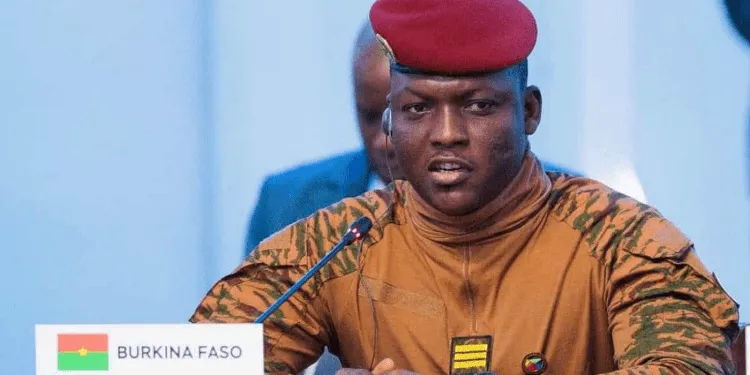Ouagadougou, Burkina Faso – Burkina Faso’s military government announced on Saturday it will extend junta rule for another five years. The announcement, made through a state-owned broadcaster, also revealed that Capt Ibrahim Traoré, the country’s ruler, will be eligible to contest the next presidential election.
Capt Traoré initially seized power nearly two years ago with a pledge to restore civilian government by July 1, 2024. However, this recent development sees Burkina Faso following the footsteps of neighboring Mali, which also extended its military rule. The decision was made during a national consultation meeting in the capital, Ouagadougou, and has been formalized through an amended charter signed by Capt Traoré.
The new 60-month transition period is set to commence on July 2, 2024. According to the charter, elections marking the end of this transition may be organized sooner if the security situation permits. Burkina Faso has been under military governance since January 2022 when Lt Col Paul-Henri Damiba overthrew President Roch Kaboré, citing the government’s failure to curb escalating Islamist militant violence.
Burkina Faso has been grappling with a jihadist insurgency since 2015, with militant groups affiliated with Al-Qaeda and the Islamic State wreaking havoc across the nation. Thousands have been killed, and millions displaced due to the ongoing violence. Col Damiba’s inability to tackle this insurgency led to his ousting by Capt Traoré in September 2022, who then pledged to enhance security within “two to three months” and return to civilian rule within 21 months.
Despite these promises, Capt Traoré has since emphasized that holding elections is not a priority until sufficient territory is reclaimed from jihadist forces, ensuring that all citizens can participate in the voting process.
The new charter introduces significant changes to the political landscape of Burkina Faso. Quotas will no longer be used to allocate seats in the assembly to traditional political parties. Instead, deputies will be selected based on “patriotism,” as reported by the AFP news agency. The swift decisions made during the national consultation meeting raised eyebrows, especially since local media reported the absence of political parties at the beginning of the meeting.
The international community has expressed concern over the extension of military rule. Human rights organizations, including the European Union and the United Nations, have accused Burkina Faso of serious human rights violations in its fight against Islamist militants. These accusations include indiscriminate killings and forced disappearances of civilians.



